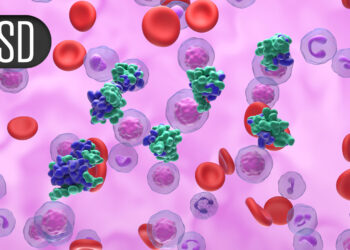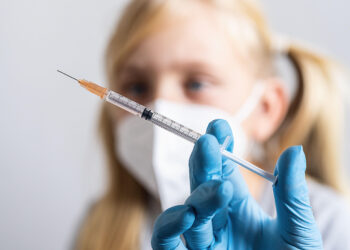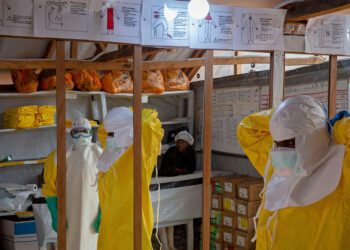
- Researchers say daily coffee consumption can lower a person’s overall mortality risk as well as their risk of death from cardiovascular disease.
- However, the benefits decline for those who add significant amounts of sugar and saturated fats, such as cream, to their coffee.
- If you don’t enjoy the taste of coffee, experts say there are healthy alternatives that offer similar health benefits.
Coffee might be good for your heart as well as your overall health, but you might want to order it black.
That’s the conclusion of a new observational study conducted by researchers from Tufts University and recently published in The Journal of Nutrition.
In their findings, the researchers reported that people who drink one to three cups of caffeinated black coffee per day with little or no sugar or saturated fats added had a 14% lower overall mortality risk and a lower risk of death from cardiovascular disease compared to people who drink no coffee.
They noted that drinking more than three cups a day was not associated with an additional risk reduction. The risk reduction was also not evident for people who add significant amounts of sugar or fats, such as cream, to their coffee.
In addition, the researchers said they did not notice a lower cancer mortality risk among regular coffee drinkers.
Zhaoping Li, MD, a professor of clinical medicine at the University of California, Los Angeles, said this study adds to prior research on coffee’s health benefits. Li wasn’t involved in the study.
“What the study found is consistent with what we know,” she told Healthline.
Maya Vadiveloo, PhD, RD, an associate professor in the Department of Nutrition at the University of Rhode Island and chair of the American Heart Association (AHA) Nutrition Committee, agreed.
“It’s an interesting analysis in a nationally representative sample of U.S. adults that is largely consistent with existing studies finding the benefits of moderate coffee intake,” Vadiveloo, who wasn’t involved in the study, told Healthline.
Kristin Kirkpatrick, RD, the president of KAK Consulting and a dietitian at the Cleveland Clinic Department of Wellness & Preventive Medicine in Ohio, echoed these remarks. Kirkpatrick likewise wasn’t involved in the study.
“The study is in line with previous studies showing mortality benefits to coffee consumption,” she told Healthline. “I also think that highlighting the fact that what we put in our coffee is often the culprit for a less healthy drink is a critical point for consumers.”
Those cycles included a representative sample of 46,000 adults ages 20 and older who completed valid first-day 24-hour dietary recalls.
They then linked that information with
Li noted that the study used an older database that utilized information that was self-reported by participants.
David Cutler, MD, a family medicine physician at Providence Saint John’s Health Center in Santa Monica, California, emphasizes that the study only reports an association between lower mortality risks and coffee consumption. Cutler wasn’t involved in the study.
He said there are factors that could influence those results. One such factor could be the fact that people who drink coffee are generally healthier than those who don’t.
“You shouldn’t think that if you drink black coffee that it’s going to extend your life,” Cutler told Healthline. “That’s not what the study says.”
A data trends report conducted earlier this year on behalf of the National Coffee Association reports that about two-thirds of people in the United States drink coffee each day.
That trend has held steady over the past five years. However, the percentage of people who drink specialty coffees has increased by 18% during that same time period.
Experts say what type of coffee people drink is important when it comes to health benefits.
Li said that how a person “dresses up” their coffee can make a big difference. Sugar and cream can add as many as 800 extra calories, and a pastry eaten with the beverage bumps that up even more.
“There’s an overall calorie load as well as a sugar load and a fat load,” she said.
“I do think it’s important to emphasize that it matters how coffee is prepared,” added Vadiveloo. “A lot of coffee beverages, especially prepared beverages, are very high in added sugars and saturated fats, and those are not cardioprotective.”
Kanwar Kelley, MD, a specialist in otolaryngology head and neck surgery, obesity medicine, and lifestyle medicine, and the co-founder and chief executive officer of Side Health, says there can be other downsides.
“Coffee is a stimulant and changes to the amount drunk daily could lead to some withdrawal symptoms like headache, tiredness, and fatigue,” Kelley, who wasn’t involved in the study, told Healthline. “Large amounts of caffeine can lead to jitteriness, palpitations, and anxiety.”
Over the years, studies have reported that coffee can produce a number of health benefits.
Among the advantages are a lower risk of type 2 diabetes (T2D), better brain health, protection against liver conditions, and a decreased risk of heart disease.
Coffee also reportedly can help with athletic performance and weight management.
Scientists aren’t exactly sure why coffee seems to produce a number of health benefits, but there are some theories.
“Coffee offers additional benefits beyond energy and focus,” added Kelley. “Coffee contains chemicals that can act as probiotics for gut health and improve gut motility.”
Li noted that some people may metabolize coffee quickly, while others metabolize it more slowly, which may cause problems for some people, including those with heart conditions.
“Some people may need to slow down and dial back [their intake],” Li said.
Your DNA may play a role, too. “Genetics may offer some insight into how much, or how little, coffee may be tolerable in an individual,” Kirkpatrick explained. “Variations in a gene called CYP1A2 show that some genotypes are slow metabolizers of caffeine, meaning they should limit total caffeine intake to reduce cardiac risk.”
“Other genes, such as the
Li added that coffee is not a healthy choice to combine with alcohol because you are ingesting both a stimulant and a sedative.
For those who want or need to cut back on their coffee consumption, Li suggested green tea, which has about one-third of the caffeine of coffee but provides similar health benefits.
She also recommended drinking filtered water, especially if you add fruits such as mangos or strawberries. Shaking up that combination in a water bottle is an option.
“It’s tasty and it’s healthy,” Li said.
Cutler agreed with the water alternative. He said if you’re drinking coffee for the caffeine or the taste, it’s fine to have two or three cups a day. However, if you’re just seeking health benefits, then water is a better option.
Source link : https://www.healthline.com/health-news/black-coffee-may-lower-cardiovascular-disease-risk
Author :
Publish date : 2025-06-26 07:18:05
Copyright for syndicated content belongs to the linked Source.











